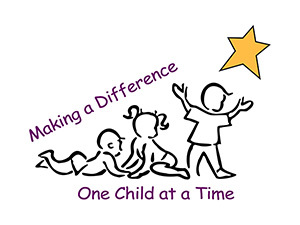The Infant/Toddler Program is a comprehensive, multidisciplinary program that addresses the needs of infants and toddlers (ages birth through two years) who are experiencing identified developmental delays or have a diagnosed developmental disability in one or more of the following areas: cognitive skill development (thinking and reasoning); physical/motor development, speech and language development, and social/emotional development. In order for a child to receive services through the Infant/Toddler Program, the child must qualify based on the results of a developmental evaluation or if the child is determined to be at risk for developmental delays. The child must be identified as having a delay or disability according to Wyoming’s Rules and Regulations governing services for children with disabilities. State rules and regulations mandate that services for children with special needs are provided at no cost to families. The amount of time allotted for various services will vary depending upon each child’s specific needs.
If a child qualifies for services from the Infant/Toddler Program, then an Individual Family Service Plan (IFSP) is created for the child by the IFSP team which consists of the child’s parents/guardians, a team of Early Interventionists, and other professionals. An IFSP outlines a child’s current level of performance, the concerns and priorities for the child and family, and the course of treatment and therapy. The IFSP will include goals/outcomes for the child’s development, will schedule progress checkpoints/meetings to ensure that those goals are being met, and/or determine if the IFSP needs to be changed at any time to fit the needs of the child. The IFSP may include cognitive, physical, language, social-emotional and/or self help skills. A team of Early Interventionists who are specifically trained and educated in early childhood will provide services according to the IFSP. The success of the child’s therapy/treatment plan is dependent upon the solid partnership and teamwork between the child’s parents/guardians and the Early Interventionists working with the child.
Early intervention services for infants and toddlers are provided in a child’s natural environment, which may include the child’s home or childcare facility, or another location chosen by the parents/guardians. In addition to providing therapy/treatment for a child, Early Interventionists provide training to parents/guardians to assist in carrying out their child’s plan. One of the primary goals of the Infant/Toddler Program is to teach parents to be their child’s primary teacher. A child’s family is his/her greatest resource.
Program services offered may include: special education instruction (Cognitive Therapy), Physical Therapy, Occupational Therapy, Speech and Language Therapy, Social and Emotional Development, Vision Services, Audiology Services and Family Service Coordination.
